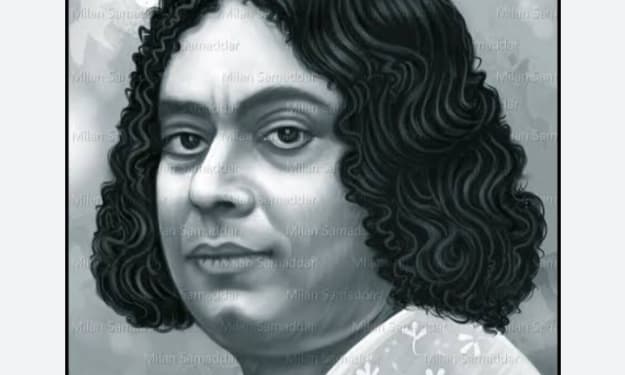BEGUM ROKEYA
Bengali feminist writer and social reformer

Rokeya Sakhawat Hossain[a] (commonly known as Begum[b] Rokeya; 9 December 1880[c] – 9 December 1932) was a Bengali thinker, essayist, novelist, literary figure and social reformer. She is the pioneer of the Bengali Muslim women's awakening and the first Bengali feminist. [4] Begum Rokeya was voted sixth in the 'Greatest Bengali of All Time' poll by BBC Bengal in 2004. [5] Short stories, poems, essays, novels, science.
Rocaire's style was characteristic of fiction and satire.[1] Ingenuity, logic, and humor were characteristic features of his work.[1] The subject matter of his essays was wide and varied. His inquiry about science is also found in various writings. [1] Matichur (1904) argued for the equality of men and women in the essay and called for the establishment of equal rights for women by achieving economic, social and political independence and the lack of education.
stated the cause of women's backwardness.[4] Her Sultana Swapna (1905) is considered a classic example of feminist utopian literature.[6][7] Padmarag (1924) is her novel. In Avaroda-Basini (1931) he satirizes the system of siege.[8]
She was the pioneer of Bengali Muslim women's awakening and the first Bengali feminist. In 2004, Begum Rokeya was selected sixth in BBC Bengal's 'Greatest Bengali of All Time' poll. Roqueir's style was distinctive in short stories, poems, essays, novels, science fiction and satire.
She was the pioneer of Bengali Muslim women's awakening and the first Bengali feminist. In 2004, Begum Rokeya was selected sixth in BBC Bengal's 'Greatest Bengali of All Time' poll. Roqueir's style was distinctive in short stories, poems, essays, novels, science fiction and satire.
Apart from school management and literary practice, Rokeya kept himself busy in organizational and social activities till the end of his life. In 1916, she founded Muslim Bengali women's organization Anjuman Khawatin Islam. In 1926, he presided over the Women's Education Conference of Bengal held in Calcutta.
Why is Begum Rokeya called the pioneer of women's awakening?
Begum Rokeya understood that girls should have the rights that boys have. Society and country cannot progress if girls lag behind boys. He was the first to fight for women's rights. Therefore, he is called the pioneer of women's awakening.
Begum Rokeya is one of the pioneers of women's awakening and women's rights movement in Bengali Muslim society. For the first time, he raised the demand for equal rights of men as well as women in the Bengali Muslim society, propagated his doctrine in favor of women's freedom, broke the chains of the blockade system. His writings were also vocal against child marriage and polygamy.
Sakhawat Hossain died in 1909. As her husband died at a young age, Begum Rokeya became completely alone. Five months later, Rokeya established a girls' school named Sakhawat Memorial Girls School in Bhagalpur.
Rokeya expressed her feminist thoughts in the first (1904) and second (1922) volumes of Matichur's collection of essays. Sultana Swapna (1905), Padmaraag (1924), Abrodhbasini (1931) etc. are his creative works. Her Sultana's Dream is considered a milestone in world feminist literature.
Rokeya expressed her feminist thoughts in the first (1904) and second (1922) volumes of Matichur's collection of essays. Sultana Swapna (1905), Padmaraag (1924), Abrodhbasini (1931) etc. are his creative works. Her Sultana's Dream is considered a milestone in world feminist literature.
She was the pioneer of Bengali Muslim women's awakening and the first Bengali feminist. In 2004, Begum Rokeya was selected sixth in BBC Bengal's 'Greatest Bengali of All Time' poll. Roqueir's style was distinctive in short stories, poems, essays, novels, science fiction and satire.
Begum Rokeya died in Calcutta on 9 December 1932. At that time she was writing an essay titled 'Women's Rights'.






Comments
There are no comments for this story
Be the first to respond and start the conversation.